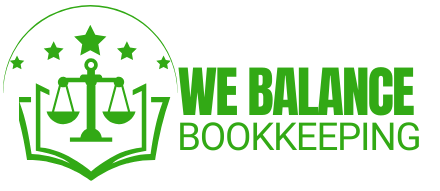Running a Limited Company isn’t the same as being a sole trader.
You and the company are different entities and, as such, there are strict rules around how you can extract money from your Limited Company.
Many contractors and freelancers choose to become directors of their own limited company as it can be more tax efficient and prestigious.
However running a limited company also comes with more financial administration and rules around what you can and can’t do.
There are a few different ways to pay yourself through your limited company, and the method which you choose will depend on your circumstances.
Limited Company Need to Knows
The first thing you need to understand is that your limited company is a separate legal entity.
All of the assets within the limited company belong to the business rather than you the owner.
This means that you cannot just take money from your business like you would your own personal business account, the money isn’t yours.
There are specific procedures which need to be followed and any money going in and out of the limited company business bank account must be accounted for properly.
Four ways to take money out of a limited company
- Salary
- Dividend payments
- Director’s loan
- Reimbursement of expenses
Salary
Taking a salary is one of the preferred options of Limited Company Directors as it ensures a regular monthly income (subject to funds).
It is reasonably simple to pay yourself a salary from your business bank to your personal account. The key thing to be aware of is that first you must register your company with HMRC and set up the business as an employer.
You will be required to deduct all tax and National Insurance contributions and Employers National Insurance Contributions. This is paid directly to HMRC on either a monthly or quarterly basis.
HMRC will also require monthly submissions to confirm this salary information.
The personal allowance is currently set at £12,570 (2022/2023).
This means, providing you have no other relevant income within the tax year, a single owner Director can draw a salary up to this amount without the need to pay income tax. But you will have to pay some National Insurance over £758.33 salary per month.
Dividend payments
It’s unlikely that the majority of your income will come from a salary, so another thing to consider is dividend payments.
Once your company makes a profit, it will need to pay a percentage as corporation tax, but whatever is left can be paid to shareholders in the form of dividends.
Dividends are a way of dividing up the company’s profits and distributing them to shareholders as a percentage, based on the proportion of the company they own. An important point to understand is that dividends are awarded per share and type of share.
Limited companies can issue dividends at the end of the financial year, and at points throughout the year, subject to profit being declared and available.
The company directors must declare dividends and a payment date, agreed and minuted at a board meeting, after which, the shareholders should be issued with a dividend certificate. This procedure should be followed fully, even if the company only has one director.
Dividends are usually more tax-efficient than paying yourself a salary, which is why most business director shareholders choose them, to make up the majority of their income.
Director’s loan
A director’s loan allows you, as the director, to either lend money from the business, or for the business to borrow money from your own funds.
An overdrawn directors loan needs to be repaid to your business account within nine months of the end of the financial year to avoid an additional repayable tax charge (S455 charge which is currently 32.5%). If your business is new, it can be helpful to pay a small loan to help with things like start-up costs.
The tax liabilities and any interest payable concerning loans depend on the balance and the length of time for which the account is overdrawn.
If the company owes money to a director, then that sum can be withdrawn at any time without incurring any tax liabilities. All transactions must be recorded in a director’s loan account. At the end of the financial year, this record must also be recorded on the balance sheet of your annual accounts.
If you are a company shareholder as well as a director, you may have to pay tax on your director’s loans owed to the company, if it is not repaid within 9 months. If you borrow more than £10,000 you must also report the Directors Loan on your self-assessment tax return as the loan will also be treated as a Benefit in Kind and taxable.
Reimbursement of expenses
Any cost that you have incurred personally, which have been made ‘wholly and exclusively’ for the purpose of your business, can be claimed as a legitimate business cost. Therefore, not only will your business receive tax relief on these expenses, but you will also be able to reimburse yourself personally for the cost.
These costs typically include business miles, insurance and equipment, but can include any cost which was necessary.
Although business expenses will not make up a large portion of your overall take-home pay, this is an additional and tax-free method which many directors find useful.
What’s the best way to pay myself as a Director?
With so many different options available, it’s not always easy to know what the best way to take money out of your company is.
Many contractors and freelancers find that paying themselves a combination of salary and dividends is the most tax-efficient way of operating.
This will depend on your business and your personal needs. We’d always advise seeking advice about your specific circumstances and are here to help.






